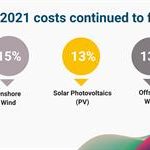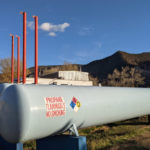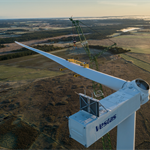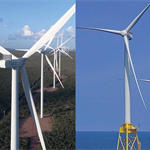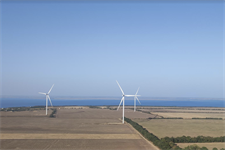Wind lobby fears Finnish far-right could force wind developers to use fossil fuels
Energy Disrupter

Finland’s general election on 2 April saw the right-wing National Coalition Party (NCP) win the most seats (48), followed by the far-right nationalist Finns party on 46. Prime minister Sanna Marin’s centre-left Social Democrats placed third with 43.
The closeness of the results means a coalition government in the Nordic country is now likely, prompting wind industry concern that the Finns may help form a government that could implement an agenda that is hostile to wind energy.
“The Finns see wind power to be harmful. They want to move climate neutrality goals to 2050 [from 2035] and even that is a compromise from them,” Kimmo Kyrölä, advocacy manager at the Finnish Wind Power Association, told Windpower Monthly.
“They want to stop the emissions trading scheme, give tax cuts to peat, and [potentially] force wind power companies to build fossil capacity to fill electricity needs of calm days,” Kyrölä added.
He referenced a section of the Finns’ 2023 manifesto which outlined proposals to require wind developers to ensure a “minimum power” output is met by, for example, producing regulating power with domestic multi-fuel power plants. In its manifesto, the Finns party refer to multi-fuel power plants as using fossil fuels and biofuels, as well as carbon capture utilisation and storage. The Finns would also require the wind industry to remove and recycle all materials from wind farms.
Wind power is currently booming in Finland. The country reported record wind installations in 2022, adding 2.4GW of new installed capacity — almost doubling its total installed capacity to around 5.6GW. It was also the second hottest investment market in Europe last year, according to industry body WindEurope.
While the Finns could be potentially harmful to the development of new wind energy in the country, both the Social Democrats, which formed the ruling government since 2019, and the newly victorious NCP have been vocally supportive of wind as an energy source.
The NCP said it would not renege on the 2035 climate neutrality goal, and would promote wind power as a means of improving energy security in the country.
“Elections can have major results for wind energy in Finland but it is too soon to say anything sure yet,” Kyrölä said.
He added: “If the Finns get their goals through it will mean difficulties for wind energy in Finland. However, you should keep in mind that it is still possible that the future government is based on NCP and SDP. In that case it could be good news for wind power in Finland. Wind is the cheapest way to create new electricity capacity in Finland and it will continue to be so. I am confident that the future government understands this.”


